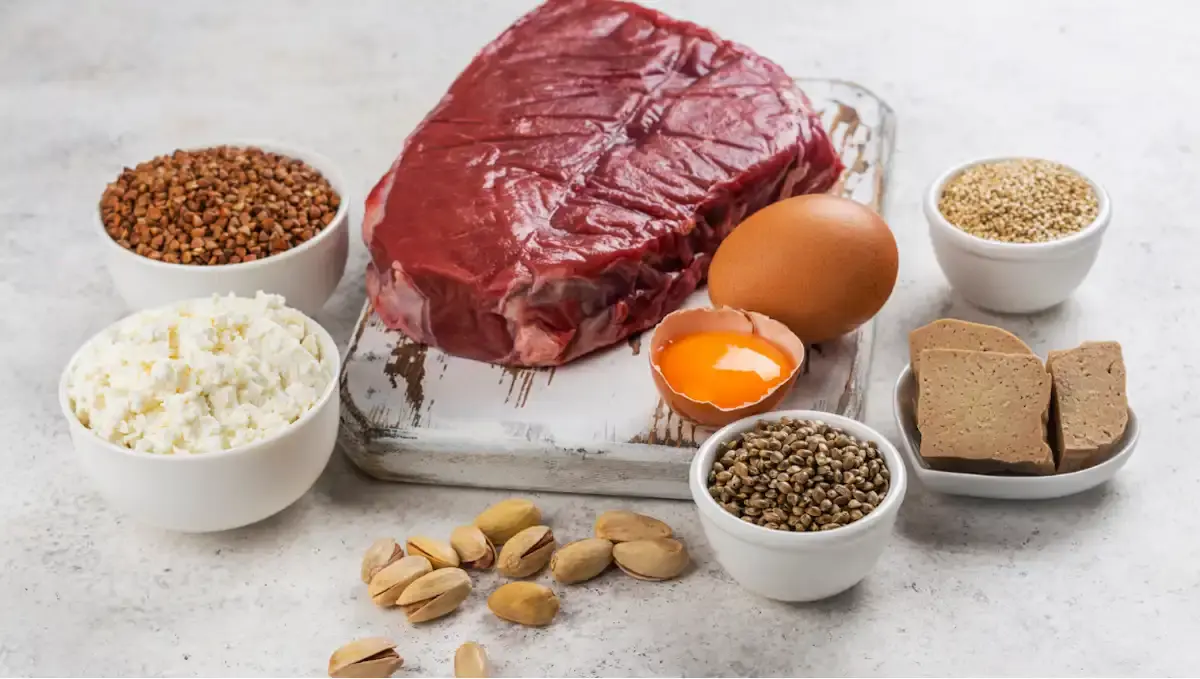In the quest for weight loss, nutrition plays a pivotal role, serving as both a science and an art. While many people focus on calories and fats, protein intake often takes a backseat despite its critical importance in losing weight effectively and sustainably. This article explores the role of protein in weight loss, how much you should consume, and strategies for incorporating it into your diet.

The Role of Protein in Weight Loss
1. Satiety and Appetite Control
Protein is known to be the most satiating macronutrient. Studies have shown that meals high in protein can leave you feeling fuller for longer periods, thereby reducing overall calorie intake throughout the day. This effect is crucial for weight loss, as it helps to curb cravings and prevent binge eating.
2. Muscle Preservation
When in a calorie deficit for weight loss, the body may not only burn fat but can also break down muscle for energy. Consuming adequate protein helps preserve lean muscle mass during weight loss, ensuring that the majority of weight lost comes from fat, not muscle. Maintaining muscle mass is essential for a healthy metabolism, as muscle tissue burns more calories at rest compared to fat tissue.
3. Thermic Effect of Food (TEF)
Protein also has a higher thermic effect compared to carbohydrates and fats. This means that your body uses more energy (calories) to digest and metabolize protein than it does for other macronutrients. Incorporating more protein into your meals can therefore increase the total number of calories burned through digestion, aiding weight loss.
How Much Protein Do You Need?
The Basic Guidelines
The required amount of protein varies based on several factors, including age, gender, level of physical activity, and individual goals. However, a commonly accepted benchmark for those looking to lose weight is as follows:
- General Recommendation: For most adults, a protein intake of 0.8 grams per kilogram of body weight is recommended for general health. However, for weight loss and muscle preservation, a higher intake is usually advised.
- Active Individuals: If you are actively working out, especially resistance training, it is suggested that you consume 1.2 to 2.2 grams of protein per kilogram of body weight. This range can help support muscle maintenance while in a caloric deficit.
Practical Calculations
To find your ideal protein intake for weight loss, you need to determine your weight in kilograms (1 kg = 2.2 lbs) and then multiply by the protein requirement that best fits your lifestyle and goals.
Here’s how to do it:
- Convert weight from pounds to kilograms:
- Weight in kg = Weight in lbs ÷ 2.2
- Multiply by the appropriate protein intake:
- For sedentary individuals: Weight in kg × 0.8 g
- For active individuals aiming for weight loss: Weight in kg × 1.2 to 2.2 g
Tips for Increasing Protein Intake
1. Choose Lean Protein Sources
Lean meats, poultry, fish, eggs, low-fat dairy, beans, legumes, and plant-based proteins (like tofu and tempeh) are excellent sources of protein without excessive calories. Incorporating these foods into your meals can help you meet your protein goals while still fostering weight loss.
2. Include Protein in Every Meal
Distributing your protein intake throughout the day helps maximize satiety and muscle protein synthesis. Aim to include protein in every meal and snack. This could mean adding Greek yogurt to your breakfast, fish to your lunch, and chicken or legumes to your dinner.
3. Consider Protein Supplements
If you find it difficult to reach your protein goals through food alone or are on a particularly caloric restrictive diet, consider using protein supplements, such as whey or plant-based protein powders. These can be effective for boosting protein intake without adding excessive calories.
4. Snack Wisely
Opt for high-protein snacks, such as nuts, protein bars, Greek yogurt, or cottage cheese, instead of typical carb-heavy snacks. This can help you satisfy your cravings while supporting your weight loss goals.
5. Meal Prep
Planning and preparing your meals in advance can ensure you have protein-rich options readily available. Consider batch cooking chicken, beans, or lentils at the beginning of each week for easy access and to prevent poor dietary choices.
Balancing Protein with Other Macronutrients
While protein is essential for weight loss, maintaining a balanced diet that includes healthy fats and carbohydrates is also crucial. Carbohydrates provide energy, especially if you are active, and healthy fats are vital for hormone production and satiety.
To create a balanced meal:
- Fill half your plate with vegetables,
- One-quarter with lean protein,
- One-quarter with healthy carbohydrates (such as whole grains or starchy vegetables),
- Include a small serving of healthy fats (like olive oil or avocados).
Monitor Your Progress
Tracking your protein intake, as well as your overall calorie and nutrient consumption, can be beneficial in staying on track during your weight loss journey. You may use smartphone apps, food diaries, or work with a registered dietitian to fine-tune your diet and ensure you’re getting the nutrients you need.
Common Misconceptions about Protein and Weight Loss
1. High Protein Diets are Harmful
Many people fear that high protein diets are bad for kidney health, especially for those with pre-existing conditions. However, for healthy individuals, higher protein intakes are generally safe. That said, if you have kidney disease or other medical conditions, consult a healthcare provider before significantly increasing your protein intake.
2. Protein Alone Will Cause Weight Loss
While protein is important, it is not a magic bullet for weight loss. Weight loss ultimately comes down to consuming fewer calories than you burn, regardless of macronutrient makeup. Protein can aid in this process, but should be part of a well-rounded diet and a healthy lifestyle.
Conclusion
Incorporating adequate protein into your diet is an essential component when it comes to losing weight effectively while maintaining muscle mass. By understanding how much protein you need and incorporating various strategies to meet your intake, you can enhance your weight loss efforts and achieve a healthier, more sustainable lifestyle. Always remember to consult with a healthcare provider or a certified nutritionist before making significant changes to your diet, especially if you have underlying health conditions or specific dietary needs. Whether you choose to incorporate more lean proteins into your meals or consider supplementation, the key is consistency and balance, ensuring that protein supports your weight loss journey rather than leading it.


